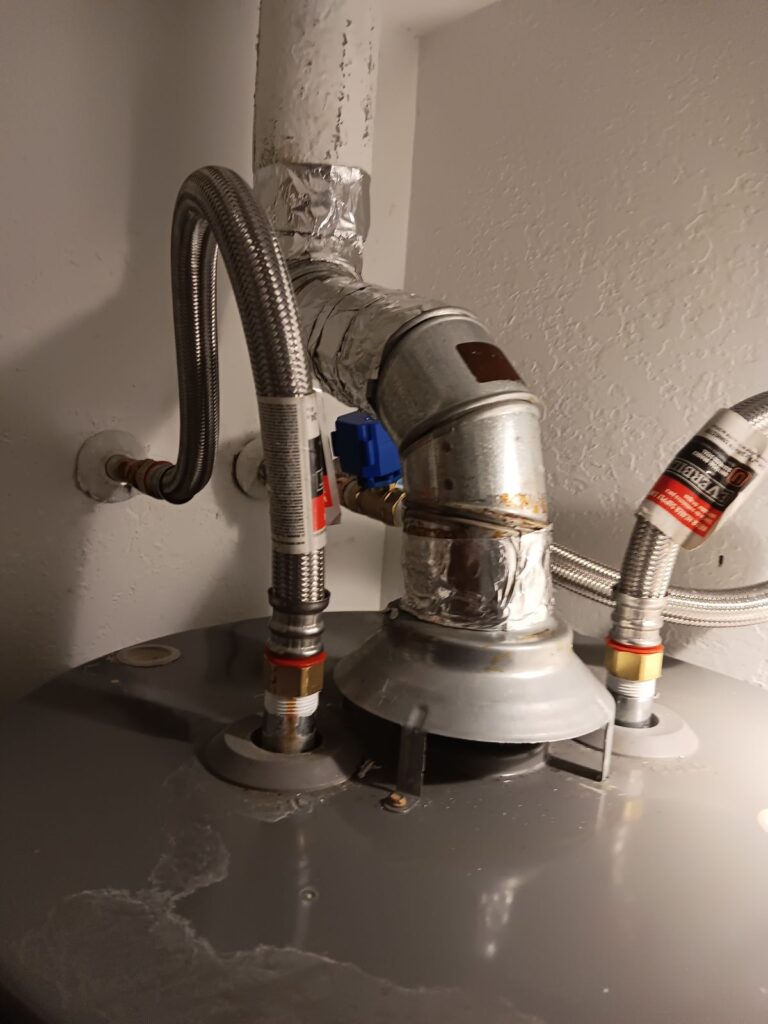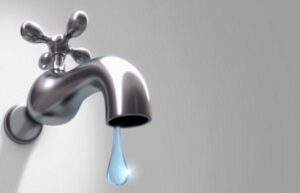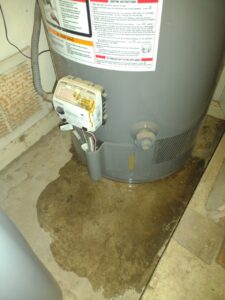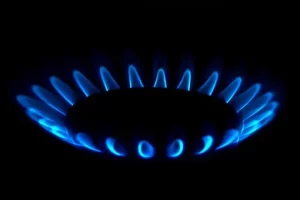Water Heater Repair
Why Your Water Heater Isn't Working
Water Heater Repair In Scottsdale, AZ and Surrounding Areas
A well-functioning hot water heater is an essential component of your plumbing system. As time goes by, various factors such as wear and tear, hard water, aging, water pressure, or other problems can result in the failure of your water heater. This failure can give rise to several issues and ultimately leave you without hot water during your shower. Luckily, Blueline Plumbing is a local plumber in your area who specializes in water heaters.
Let Blueline Plumbing assist you if you are dealing with an underperforming water heater.

What's the issue?
No Hot Water
 If your water heater is electric, it may be that the breaker servicing it has tripped. You can reset the breaker by switching it completely to “Off”, then switching it back to “On”. If the breaker immediately shuts off again, your water heater is in need of service. You may have an element that has grounded out. If your water heater is electric and the breaker servicing it is on but you have no hot water, the reset button in the water heater’s service panel may have tripped. This can be reset by pushing the (usually red) button back in. This procedure is probably best left to a service tech or plumber.
If your water heater is electric, it may be that the breaker servicing it has tripped. You can reset the breaker by switching it completely to “Off”, then switching it back to “On”. If the breaker immediately shuts off again, your water heater is in need of service. You may have an element that has grounded out. If your water heater is electric and the breaker servicing it is on but you have no hot water, the reset button in the water heater’s service panel may have tripped. This can be reset by pushing the (usually red) button back in. This procedure is probably best left to a service tech or plumber.
If your water heater is gas, an internal leak may have put out the pilot light, of the unit simply isn’t getting any gas. Look for evidence of leakage, like water on the floor.
Luke Warm Water
If your water heater is electric and you are only getting lukewarm water, you may have a burned out heating element.
There are usually 2 elements. If one is working and the other is burned out, your water will not rise above lukewarm.
An element replacement will likely restore your electric water heater to full service.
Noises Coming From a Water Heater
A water heater may produce various noises such as a low rumbling, popping, or high-pitched whine. This occurrence is often caused by sediment accumulation at the bottom of the tank, leading to bubble pushing through the sediment. A water heater flush may clear out the sediment that is causing the issue. At this stage of use, flushing might not remedy the problem. But, you may still have years of service from your water heater.
Temperature and Pressure Relief Valve Leaking
Several factors could contribute to a water heater temperature and pressure relief (T&P) valve leaking, potentially indicating underlying issues that require attention. One common cause is excessive pressure buildup within the water heater tank, often resulting from a malfunctioning temperature control system or a faulty pressure regulator. When the pressure exceeds safe levels, the T&P valve activates to release excess pressure and prevent a catastrophic tank rupture, resulting in water leaking from the valve. Another potential cause of a T&P valve leak is overheating of the water within the tank. If the water heater’s thermostat is set too high or if the heating element malfunctions, the water temperature can rise beyond safe limits. In response, the TPR valve opens to release scalding-hot water, which may escape through the valve and onto the floor or outside termination.
NEVER cap-off a leaking T&P valve or it’s discharge piping. To do so could be dangerous. If your water heater T&P valve is leaking, call Blueline Plumbing at once for immediate service.
Water On The Floor Near your Water Heater
 Wet areas below your water heater tank are likely due to a leak. The leak may be coming from the hot and cold supply lines, and running down to floor. Or, the inner tank may have rusted through. If this is the case, replacement is answer. Please call us for a quick diagnosis and repair to stop your leaking water heater from damaging surrounding structures.
Wet areas below your water heater tank are likely due to a leak. The leak may be coming from the hot and cold supply lines, and running down to floor. Or, the inner tank may have rusted through. If this is the case, replacement is answer. Please call us for a quick diagnosis and repair to stop your leaking water heater from damaging surrounding structures.
Bad Odor/Rust In Your Hot Water
Rust-Rust in hot water from a water heater can stem from various factors, each of which requires attention to ensure the continued functionality and safety of the system. One common cause of rust is corrosion of the water heater’s internal components, such as the tank or heating elements. Over time, exposure to water and minerals can lead to the deterioration of metal surfaces, resulting in the formation of rust particles that may contaminate the hot water supply.
Additionally, sediment buildup within the water heater tank can exacerbate rust issues by providing a conducive environment for corrosion to occur. As sediment accumulates at the bottom of the tank, it can trap water and oxygen against metal surfaces, accelerating the corrosion process and increasing the likelihood of rust contamination in the hot water supply.
Anode Issues-The sacrificial anode rod plays a crucial role in protecting the metal components of a water heater tank from corrosion. Composed of a more reactive metal than the tank itself, the sacrificial anode sacrifices itself by corroding over time, thereby drawing corrosive elements away from the tank. However, as the anode deteriorates, it can release metal particles into the water heater tank, which may contribute to discoloration of the hot water. This discoloration, often appearing as rust-colored or brownish water, is a clear indication that the sacrificial anode requires replacement. By regularly inspecting and replacing the sacrificial anode as needed, homeowners can maintain the integrity of their water heater tanks and ensure clean, clear hot water for their household needs.
Gas Issues
 If your unit is gas powered and you have no hot water, make sure the gas utility is on. That the screen in the gas inlet is clear of debris (like pipe joint compound or excess Teflon tape), and that the meter or supply valves are on. Also, that the gas utility service is on. Often, when a property changes ownership, there can be disruptions to utility service.
If your unit is gas powered and you have no hot water, make sure the gas utility is on. That the screen in the gas inlet is clear of debris (like pipe joint compound or excess Teflon tape), and that the meter or supply valves are on. Also, that the gas utility service is on. Often, when a property changes ownership, there can be disruptions to utility service.
